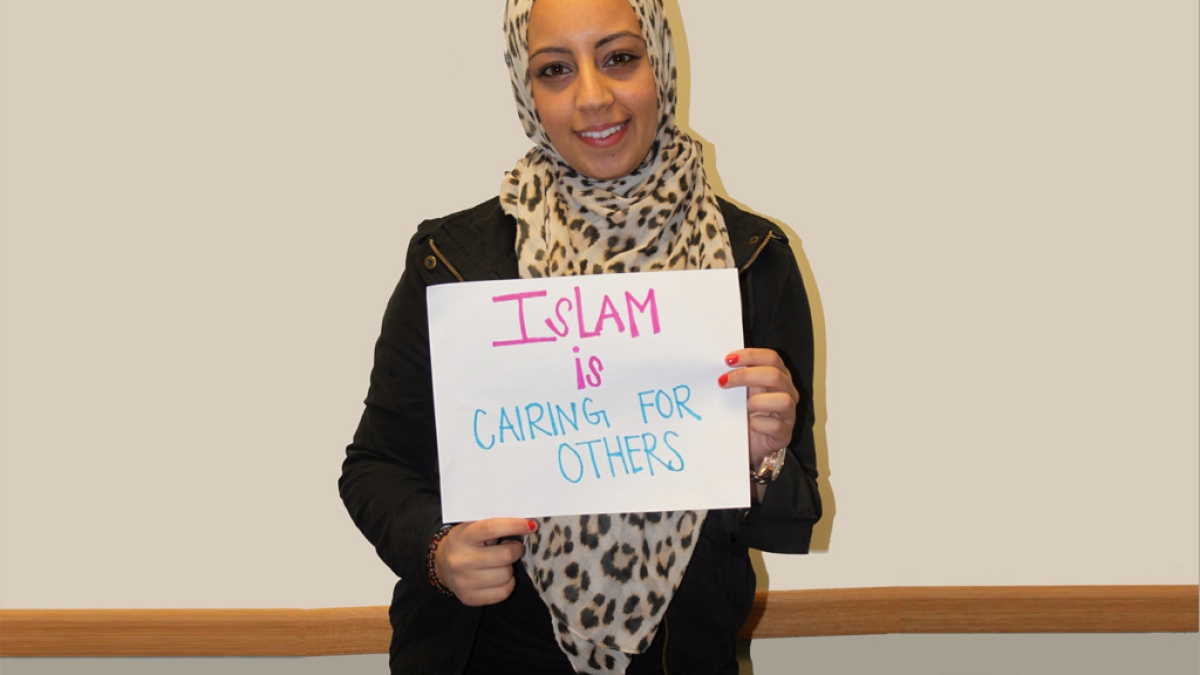Ecology and the Prophet of Islam

Awareness that the Universe is in fact a Revelation that must be respected, read, understood, and protected should reform our minds and our attitudes toward nature, animals, and therefore also to an economy focused on economic production and the mad logic of economic growth at all costs to society.
We are still very far from that and reflection about the outcomes of human activity, of levels of consumption, and of development is either absent or else remains very superficial or oversimplified: little communication has been established with the non-Muslim agents and organizations who specialized in such issues and gave us more concrete and less structural or formalistic answers.
Muslim women and men, wishing to be faithful to the deepest essential teachings of Islam, should be primarily interested in the studies-and real-life experiences-which raise questions about our development and consumption models, our utilitarian relationship to nature, and our ecological carelessness. Instead of that, consciences are stifled by heaps of legal rulings, of fatawa which address formal or secondary issues (such as, for instance, the strictly lawful character of ritual slaughter techniques in the production of meat), without considering far deeper issues such as reflection over ways of life and modes of behavior and consumption.
And yet, what should we remember of those Quranic verses that speak so beautifully of the signs in the Creation? What should we understand, when reading those verses that drew tears from the Prophet, such as that over which he pondered until dawn: "In the creation of the heavens and the earth, and the alternation of night and day, there are indeed signs for all those endowed with insight."4
The Messenger's spiritual initiation began by transforming his outlook on the world, causing him to perceive signs that spoke to him and called on him to ponder, understand, and get closer to the One. He never forgot it, and when looking into his Prophetic experience we cannot but become convinced that there can be no spiritual path without the heart and mind relating more deeply to time, space, nature, and animals. The One appealed to hearts, starting by transforming believers' outlooks on the elements, then on themselves, to turn again to the Universe. This is the meaning of the verse: "We will show them Our signs on the horizons and in themselves, until it becomes clear to them that this [Revelation] is the truth."5
The Prophet of Islam continuously reminded his Companions of the importance of the signs in Nature and of respecting it totally.6 One day, as he was passing by Sa'd ibn Abi Waqqas, who was performing ritual ablution, the Prophet scolded him: "What is this waste, o Sa'd?" "Is there waste, even in ablution?" Sa'd asked. And the Prophet answered: "Yes, even when using the running water of a stream."7 Water is a central element in all teachings and ritual practices since it represents the purification of body and heart, in both the physical ("real") and spiritual worlds. But the Prophet taught Sa'd and his Companions that neither water nor any element in nature should ever be considered merely as a "means" toward their spiritual edification; on the contrary, respecting them and using them moderately was already in itself a form of spiritual exercise and elevation, a "goal" in their quest for the Creator.
The Prophet's insisting on refusing to waste even "the running water of a stream" shows that he places respect for nature on the level of a primary principle, of a higher objective that must regulate behavior whatever the situation and the consequences of human action may be. This is not an ecology stemming from the foreboding of catastrophes (set off by human actions) but a source of an "ecology at the source" in which humankind's relation to nature rests on an ethical bedrock linked to understanding the deepest spiritual teachings.8 A believer's relationship to nature can only be based on contemplation and respect. This is what led the Prophet to say: "If one of you holds a [palm] shoot in his hand when Judgment Day arrives, let him quickly plant it."9 The believing conscience should therefore feed on this intimate relationship with nature to the very end, so that even one's last gesture should be associated with the renewal of life and its cycles.
The same teaching runs through the Prophet's life: he kept drawing his Companions' attention to the necessity of respecting all animal species. He once told them the following story: "A man was walking along a road, in very hot weather. He saw a well and went down to quench his thirst. When he climbed up again, he saw a dog panting with thirst and said to himself: 'This dog is as thirsty as I was: He then went down the well again, filled his shoe with water and climbed up, holding it between his teeth. He gave the dog to drink and God rewarded him and forgave his sins' The Prophet was then asked: "0 Prophet, are we rewarded for treating animals well?" And the Prophet answered: "Any good towards a living creature gets its reward."10 Through such traditions and his own example, the Messenger pointed out that respecting animals was part of the most essential Islamic teaching. He used all opportunities to stress this dimension.
Numerous verses and Prophetic traditions express this: they clearly set forth the terms of an Islamic ethics that should be spelled out according to the higher goals of the message as a whole. We are far from the often superficial, chaotic, if not contradictory, reflections proposed today by Muslim societies and communities, their scholars, their thinkers and their institutions, to the notable exception of a few individuals or organizations that spend a large amount of their energy swimming against the tide.
| Sale proceeds benefit IslamiCity's outreach efforts |
Excepted from "Radical Reform" Islamic Ethics and Liberation by Professor Tariq Ramadan.
Professor Tariq Ramadan holds a MA in Philosophy and French literature and PhD in Arabic and Islamic Studies from the University of Geneva. He also received training in classical Islamic scholarship from Al-Azhar University. He is Professor of Islamic Studies (Faculty of Theology at Oxford) and is also a Senior Research Fellow St Antony's College (Oxford), Doshisha University (Kyoto, Japan) and at the Lokahi Foundation (London).
Topics: Ecology, Islam, Nature And Environment, Prophet Muhammad (S) Values: Spirituality
Views: 14428
Related Suggestions
reflexion.
Joelia
wasalaam
he did not eat too much and only ate meat once in a while. he
was very kind to animals that i think he would not approve of
the way some animals, like battery chickens, are being raised for
our food. i've switched to free range recently because i could not
reconcile farming chickens in this way with islamic principles,
nor could see how it could be tayyiba even if it is halal. i'm
grateful that a brother muslim opened a shop selling free range
chicken recently. i think in terms of the environment, muslims
should be at the forefront, because we are supposed to bring
grace to the creatures of the world, as God's vicegerent on
earth, and are supposed to practice moderation and avoid
wastefulness - many of the ills that lead to environmental crises
affecting us all, and other life on earth, should be so self-
evident to Muslims that we should not need to be taught to
avoid them as it is a matter of faith and piety. yet i find it is
often difficult nonetheless.
is one of the main characteristics that need to be followed by us if we are to be called their followers.
By the way, in the incident pertaining to the person quenching thirst and giving some water to the dog, I understand - according to the hadith of the Prophet -it to be a prostitute whose sins were forgiven by Allah the Most Merciful for that simple yet important deed!Another important lesson to be learnt here for those who have understanding.

















